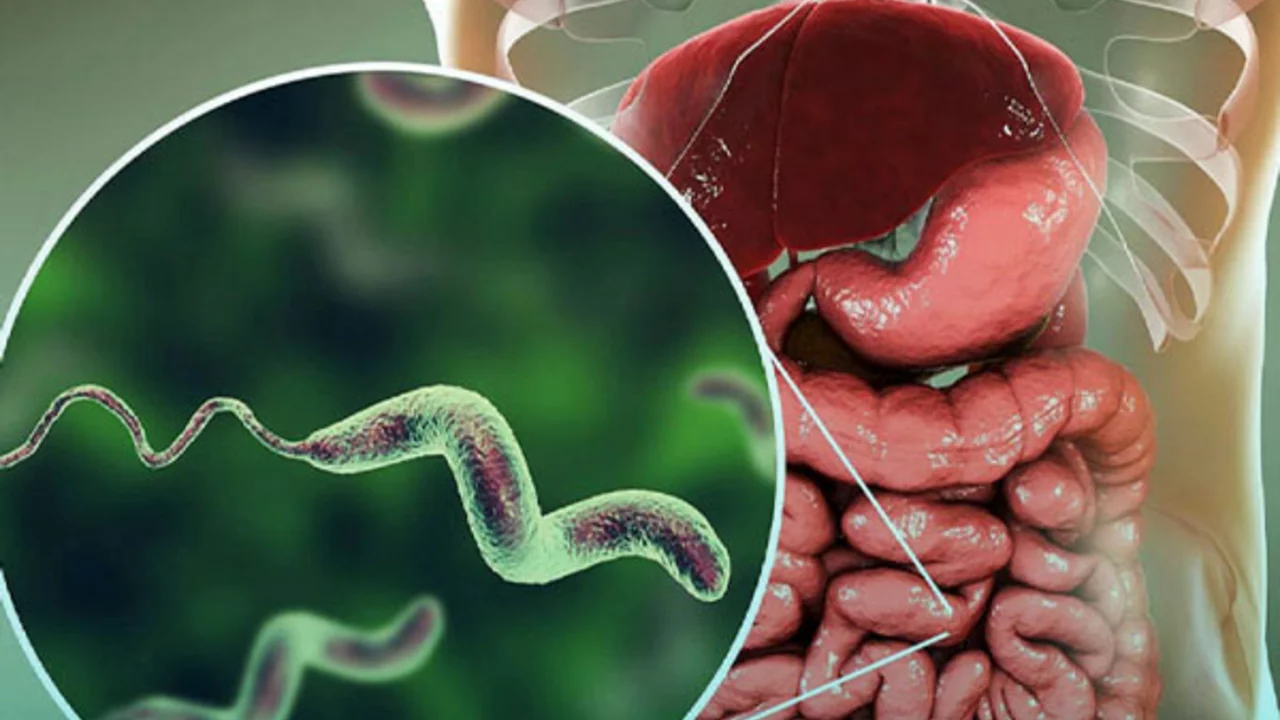
The Connection Between Diarrhea and Parasites: Prevention and Treatment
Understanding Parasites and Diarrhea
In the vast landscape of health hazards, or as I like to call them, the 'icky-sticky things we rarely speak about,' parasites have claimed a prominent position. You know what else has? Diarrhea! Yup, you read it right. As unlikely as it sounds, these two have shared a relationship longer than most of our celebrity couples, giving each other biochemical hugs and gastrointestinal high-fives. Now, without giving you more of these visual horrors, let’s delve into the nitty-gritty of the connection between diarrhea and parasites.
First off, by parasites, I'm talking about squiggly organisms that like to take a free ride on your body. These uninvited guests primarily enter your system via food or water, sometimes even making their grand entrance through your skin. I call them the party crashers of the host (that's you, mate!).
Diarrhea, meanwhile, is best defined as three or more loose or liquid bowel movements in a day. You might like to call him 'Mr. Unpredictable' or the 'Fast and Furious' of bodily functions, given its ability to strike when you least expect it.
Now, when the party-crashing-worm-inside-your-tummy meets Mr. Unpredictable... Boom! You're in the uncomfortable and socially awkward situation of having parasite-induced diarrhea! And brace yourself, it isn't something you'd want your worst enemy to have!
The Parasite-Diarrhea Love Story: Infamous Examples
Just like Brad Pitt and Angelina Jolie, diarrhea and parasites have quite a number of infamous duos. For instance, Giardia, a microscopic parasite, and Cryptosporidium, another one of those tiny bugs, can both cause a boatload of diarrhea. Then there’s Entamoeba histolytica, which causes amoebic dysentery, a type of severe diarrhea. And we can't forget about the three types of worms, hookworms, whipworms, and roundworms, that are known for causing diarrheal diseases. Remember, these are just some examples. The parasite world is vast and their diarrhea-inducing capabilities seem almost endless!
How Bad Can It Get: Complications of Parasitic Diarrhea
Now that we're familiar with the perpetrators, let's lay out the potential mayhem they can cause. Parasitic diarrhea can lead to dehydration due to water loss. It can also cause malabsorption leading to malnutrition. I assure you, mate, this is not the weight loss plan you'd like to sign up for!
If left untreated, some parasitic infections can take a severe turn, causing abdominal pain, bloating, nausea, weight loss, and even complications such as bowel obstruction, perforation, or liver abscess. Sounds grave? Well, it can be. But there's no need to panic. Prevention is entirely possible, and treatment is just a doctor's appointment away.
Blocking the Party Crashers: Preventing Parasitic Infections
Prevention, as they say, is better than cure. So let's talk about how you can stop the party-crashers from gatecrashing your gut party. First of all, maintaining good hand hygiene is essential. Simply washing your hands can save you from a whirlpool of health issues (literally!).
Another helpful tip is to ensure you're drinking safe water. Parasites often sneak into your system via contaminated water, giving you not only a scary surprise but also a nasty case of diarrhea. Food safety is another essential aspect. Thoroughly cooking your food, especially meat and seafood, can kill any potential freeloaders.
Kicking Out the Uninvited: Treating Parasitic Infections
Now, let's say despite your best efforts, the parasites managed to join your gut soiree, causing Mr. Unpredictable to make his grand appearance. What then? Don't fret! Medical science is your knight in shining armour. Your doctor will initially confirm the parasite's presence through tests such as stool analysis or blood tests.
Once knowing your uninvited guests' identities, they will prescribe medications known as antiparasitics. These fascinating drugs work in various ways to either kill the parasites outrightly or hinder their growth, effectively kicking them out from your body. Now, you're back in control!
The Journey Back Home: Recovery and Recuperation
Once you've shown the intruders the exit door and bid Mr. Unpredictable adieu, it's time to focus on recovery. This phase usually involves rehydrating and replenishing your body with fluids and nutrients. It's also essential to follow your doctor's instructions to the T and complete the prescribed course of medication. Because when it comes to parasites, the last thing you'd want is a sequel!
A 40% chance just kicked in! Here's a humorous story from my archives. I once found myself in a predicament with... you guessed it, a parasitic infection! Not my proudest moment, but hey, everyone has a plot twist, right? The ailment sure did leave me with days of unease, a suitcase full of unforgettable memories (I wish I could forget), and the reputation of being the 'Diarrhea Don' among my mates. But I made it back from that dreadful journey, all learned and stocked up with hygienic habits!
Remember, folks, the connection between diarrhea and parasites is indeed complex and sometimes quite invasive too. But armed with knowledge, good sanitary practices, and the right attitude – you're more than capable of keeping these party crashers at bay. Here's to happy intestines!





Written by Jakob Fitzroy
My name is Jakob Fitzroy, and I am an expert in pharmaceuticals with a passion for writing. I have dedicated my life to studying medication and understanding how it affects various diseases. My goal is to educate people about the importance of proper drug therapy and prevention methods. I have authored numerous articles, providing valuable insights on medication, its development, and its impact on patients. My driving force is to contribute to the ongoing fight against diseases and improve the overall health and well-being of people around the world.
All posts: Jakob Fitzroy